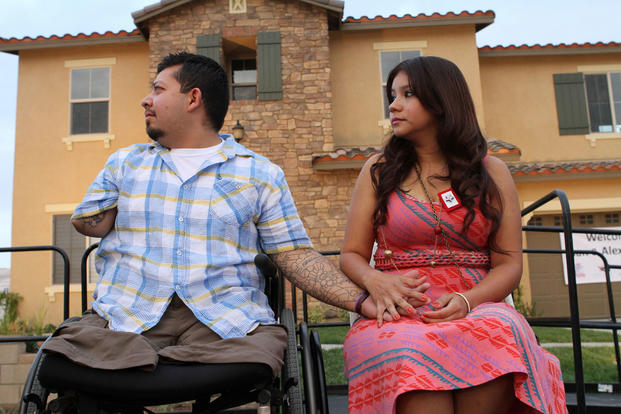Did you know that as a disabled veteran, you may be eligible for special considerations when getting a VA loan? It’s true. There are additional benefits available based on your disability status that could help you save quite a bit.
The VA Loan Funding Fee Is Waived
If you receive disability benefits and have not yet closed on your VA loan, your funding fee is waived. If you close on your loan before receiving benefits, the funding fee may be refundable. For example, if a first-time home buyer is purchasing a $200,000 home with a VA loan and no money down and qualifies for disability, the 2.3% funding fee will be waived – saving the homeowner $4,600. Once your disability benefits are approved, you must apply in writing to your state’s VA Regional Loan Center to initiate the funding fee refund. If you financed the funding fee, the refund amount will be removed from your principal amount due, and if you paid with cash, the VA will send you a check.
Related: Your VA Loan is one of your most valuable military benefits, and a VA Loan calculator is a great place to get started. Click here to calculate your rate in minutes.
If you do not receive disability benefits, you must have a pending claim for disability before the closing date of the loan. If the application for disability is dated after closing, you may not receive a refund.
Specially Adapted Housing Grants Are Available
A disabled veteran may be able to purchase a home with a fee-free VA loan, but if the home also needs accessibility modifications, the Specially Adapted Housing (SAH) grant and the Special Housing Adaptation (SHA) grant are available to help.
The SAH helps qualified veterans with one of the following:
- Build a home with special disability-related modifications.
- Remodel and modify an existing home to meet adapted housing needs.
- Apply the grant against the principal mortgage balance of an adapted home that’s already been purchased without VA grant assistance.
The SHA helps qualified veterans with one of the following:
- Adapt an existing home that is already owned by the veteran.
- Adapt a home that the veteran intends to purchase.
- Help a veteran purchase a home that has already been adapted.
If you are considering a grant, the maximum amount allowed for the SAH is $109,986 for 2023. For the SHA, the maximum amount per year is $22,036 for 2023. Additionally, veterans must have their disability benefits approved prior to applying for housing grants.
Tax Credits, Exemptions with Homeownership
Once you use your VA loan benefit to buy a new home, you are eligible for tax credits and exemptions. The Disabled Veterans Property Tax Exemption can help reduce the amount a disabled veteran pays per year in taxes. The amount varies by state, so it’s important to check with your local VA office to find out about your state-specific benefit. Or you can check online at the VA’s eBenefits portal “Benefits by State.” For example, some states offer a 100% tax exemption to all veterans, while others restrict it to 100% disabled veterans.
With a VA loan, you may also be eligible for a Mortgage Credit Certificate (MCC). The MCC is issued on the state level that allows you to claim a tax credit for a portion of the mortgage interest paid per tax year. The credit amount is determined on the state level, but is definitely a benefit worth taking advantage of.
Disability Payments Can Help You Get a VA Loan
If you are currently receiving disability compensation from the VA, it can be counted as income, which, in turn, helps you meet VA loan income requirements. To be eligible for a VA loan, income must meet three standards – it must be stable, reliable and expected to continue. The key factor in using disability pension toward a VA loan is that your payments are likely to continue.
Get Started Today
Our VA loan finder can match you with up to five rate quotes from different lenders. Check it out now!











